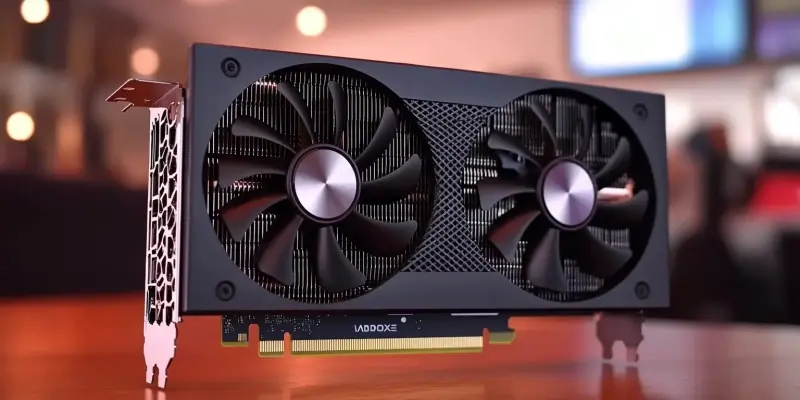As the highly anticipated battle in the mid-range GPU market looms, enthusiasts and professionals alike are keenly observing the emerging contenders. Upon AMD’s recent announcement of the Radeon RX 9070 GPU at the Consumer Electronics Show (CES), the gaming and tech communities buzzed with speculation and anticipation. Despite an event thin on concrete details, curiosity was piqued by AMD’s bold attempt to challenge Nvidia’s steady hold on the market, specifically targeting the rival’s latest RTX 4080 Super and the upcoming RTX 5070 series. An intriguing glimpse of this rivalry materialized when IGN conducted an unsanctioned benchmark test of the RX 9070 using alpha drivers, with a focus on its performance in Call of Duty: Black Ops 6, where it achieved an average of 99 frames per second (fps) in 4K resolution.
Early Performance Insights
The early benchmark results, although unofficial, presented the RX 9070 in a relatively favorable light, suggesting it could potentially match the performance caliber of Nvidia’s RTX 4080 Super. Compared to the impressive 129 fps in 4K-quality mode achieved by the RTX 4080 Super using DLSS, the RX 9070’s performance raises intriguing questions about AMD’s capabilities and strategic positioning in the market. However, the dataset from this single benchmark suggests a tentative promise and underscores the need for a comprehensive assessment across a broader range of games and applications to validate these initial findings.
AMD’s strategic decisions, including deploying the Ryzen 9950X3D CPU during benchmark tests and claims of significant Ray Tracing (RT) performance improvements, remain critical factors in the unfolding narrative. With no official specifications divulged for the RX 9000 series, it remains speculative yet tantalizing to consider whether AMD’s RX 9070 could indeed spark an intense battle in the mid-range sector. As the gaming industry eyes these developments, attention is also riveted on how friendly or otherwise individual games are towards AMD GPUs, a factor that could heavily influence user experiences and, by extension, market success.
The imminent rivalry is further cushioned by AMD’s continued advancements in AI-based upscaling technology, notably the FidelityFX Super Resolution (FSR) 4, and its potential to stand strong against Nvidia’s DLSS and Intel’s XeSS. The RX 9070 could very well excel in rasterization, potentially outmatching Nvidia’s RTX 50 series within this domain, while Nvidia’s continued leadership in dynamic upscaling, particularly with the expected enhancements of DLSS 4, remains a compelling counterpoint. These competitive dynamics poised for 2025, however, need thorough empirical validations before the tides can definitively be judged.
Market Position and Future Predictions
Despite the buzz, AMD’s market positioning for the RX 9070 remains unclear, especially regarding price. With 16 GB of VRAM, many see it as a potential rival to Nvidia’s mid-range GPUs, notably the RTX 5070, expected to be priced around $549. AMD aims to launch the RX 9070 and RX 9070 XT in Q1 2025, with potential pre-orders starting January 23, per a B&H leak. However, Nvidia is fortifying its strategy by launching the RTX 5080 and RTX 5090 on January 30, followed by the RTX 5070 and 5070 Ti in February.
The mid-range GPU market is evolving rapidly, with factors like hardware specs, tech advancements, and pricing strategies being pivotal. Key aspects to observe include AMD’s response to the RTX 5070’s price and how AMD’s AI-boosting technologies like FSR4 stack up against Nvidia’s DLSS. These elements will determine if AMD’s Radeon RX 9070 can challenge Nvidia’s dominance, especially if AMD delivers superior Ray Tracing.
Early benchmarks and speculations have set an anticipatory tone for this GPU battle. Comprehensive reviews and thorough game tests are vital for an empirical assessment of AMD’s contender. As 2025 unfolds, advancements by AMD and Nvidia will shape the competitive landscape and redefine user experiences significantly.

